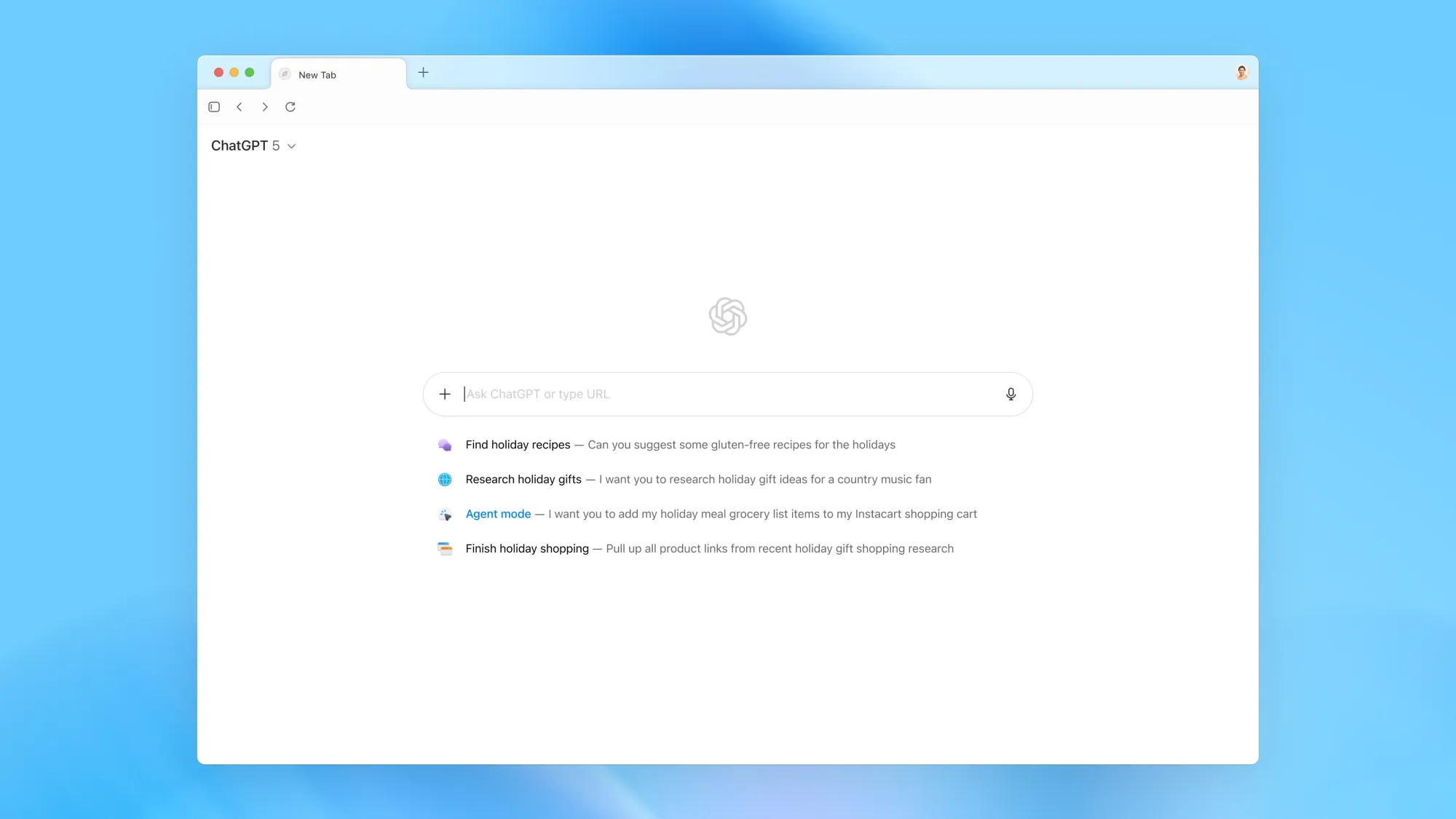What It Means for Brands
OpenAI just introduced Atlas, its new AI-native browser — and while most headlines are talking about the product itself, the real story is what it represents:
the next era of search.
Atlas merges web browsing, chat, and real-time reasoning into one interface. You can ask questions, open tabs, summarize pages, and get tailored answers — all without bouncing between search engines and websites.
It’s not just a browser update. It’s a sign that AI is becoming the primary interface between people and the internet.
The New Search Paradigm
For two decades, the web revolved around keyword search. You typed a few words into Google, scanned through ten blue links, and picked your result.
But that’s not how users behave anymore.
They ask questions. They expect answers.
AI assistants like ChatGPT, Claude, and Perplexity have already trained hundreds of millions of people to expect search that feels conversational, contextual, and fast. Now with Atlas, that experience is extending directly into the browser itself.
In other words: users won’t be visiting websites to find answers — they’ll be interacting through AI interfaces to engage with your website.
Why Atlas Changes Everything for Brands
When people use AI to explore the web, the AI becomes the filter between your brand and your audience.
It decides which sources to cite, which pages to summarize, and which voices to trust.
That means your visibility in AI-generated answers will directly shape how (and whether) customers discover you.
If Google Search was about keywords, AI Search is about credibility.
If SEO was about optimization for crawlers, GEO (Generative Engine Optimization) is about optimization for AI reasoning systems.
Atlas simply makes this shift impossible to ignore.

From Websites to Answers
Think about the journey your customers will take a year from now.
They won’t be typing “best skincare clinic near me” into Google.
They’ll ask an AI assistant inside their browser,
“Which skincare clinic near me is most trusted for laser treatments?”
The assistant will respond instantly — citing a handful of brands and sources it trusts most.
That’s the new discovery moment.
If your brand isn’t cited there, it effectively doesn’t exist in that interaction.
How ChatFeatured Fits In
At ChatFeatured, we’re building tools for exactly this shift.
Our platform tracks AI search visibility — showing where your brand appears (or doesn’t) across ChatGPT, Perplexity, Claude, and other AI platforms.
You can see:
- Which AI models mention your brand (and how often)
- The sentiment behind those mentions
- Which sources and pages are being cited
- And how your competitors stack up
We call it AI Search Intelligence, and it’s designed to help marketing teams measure and optimize their brand presence where it now matters most — inside AI conversations.
The Bigger Picture
Atlas is just one release, but it’s part of a much larger movement.
AI-native interfaces are quickly becoming how people interact with everything online — search, shopping, support, and even discovery itself.
For brands, this means a fundamental shift in strategy:
- You’re no longer optimizing for how people find you.
- You’re optimizing for how AI systems represent you.
That’s not something to think about “later.”
It’s already happening.
Final Thought
OpenAI’s Atlas isn’t just a product announcement.
It’s a turning point.
AI isn’t a layer on top of the web anymore — it’s becoming the lens through which the web is experienced.
And for brands, that means one thing:
Your presence in AI search results will soon matter more than your position in traditional ones.
Now’s the time to make sure you’re visible there.
→ Want to see how your brand appears in AI search today?
Get started with a 7-day free trial at ChatFeatured.com.


